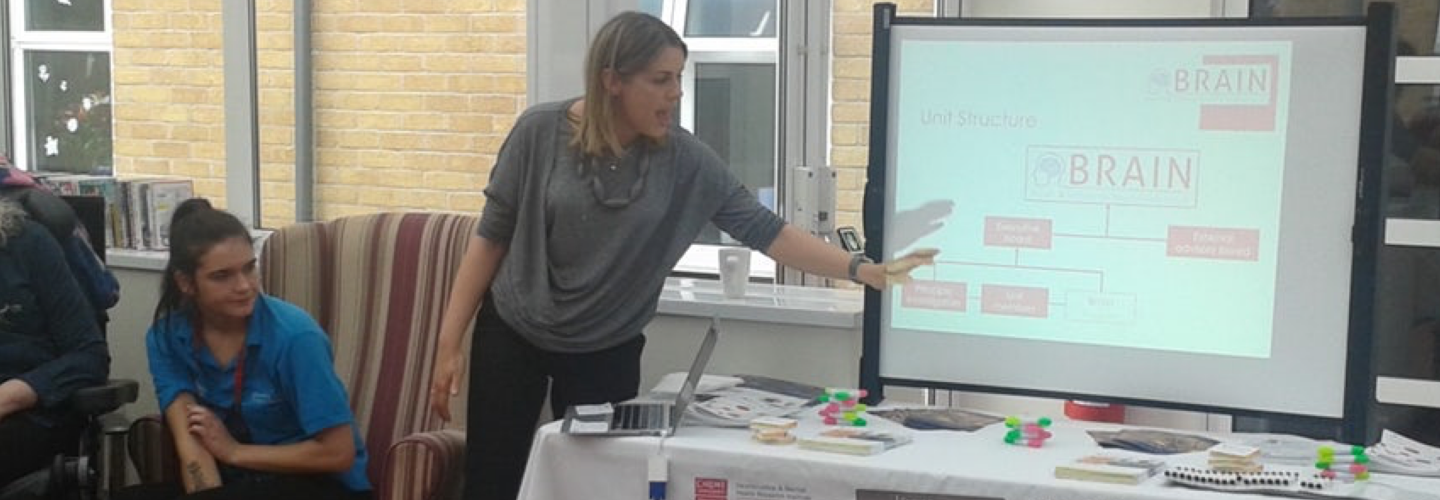Coffee morning promotes role of public involvement in research
A team of Cardiff University neuroscientists united with members of a care home in Bridgend to celebrate the importance of public involvement in research.
Researchers from the Brain Repair and Intracranial Neurotherapeutics (BRAIN) Unit visited Fieldbay’s private care home in Pen y Bont Court, Bridgend, on Friday 15 September to speak with members affected by a range of neuro-conditions.
BRAIN Involve community
The event, organised by Manager of the BRAIN Unit Dr Laura Bunting, featured two presentations followed by networking and an opportunity for Q&A. Members were invited to learn more about BRAIN Involve, a community that enables people with neuro-diseases and carers to get involved and shape the future of the Unit’s work.
Joining Dr Bunting was Professor Monica Busse, who is Director of Mind, Brain and Neuroscience Trials at the BRAIN Unit, Communications Officer Rachel Smith, and Research Associate Dr Susanne Clinch, creator of the Clinch Token Test (C3t).
Presentations aimed to make projects currently being developed by the BRAIN Unit accessible to the people they are designed to support. This includes gaining feedback on a wearable technology device that monitors exercise in people with Huntington’s disease.

Professor Monica Busse, Director of Mind, Brain and Neuroscience Trials at the BRAIN Unit
The care home is one of eight hubs managed by Fieldbay, a local care provider which specialises in supporting individuals living with varying stages of neurological and neurodegenerative disorders.
Empowering the public
“We would like to thank Fieldbay’s fantastic team for welcoming us into their centre and providing the platform to host a conversation about research and why public involvement is so important to us,” said Dr Bunting.
“It is only by getting out into the community and speaking with people living with these conditions that we as researchers can hope to understand their real needs and develop more effective treatments and therapies.
“Public involvement is about so much more than simply taking part in research. We hope that, through our BRAIN Involve community, anyone wishing to input on research grants or get involved with our events feels empowered to do so.”
Representatives from other organisations included Richenda Leonard, who is Senior Project Officer for the Wales School for Social Care Research in the College of Human and Health Services at Swansea University, and Emma Langley from the Health and Care Research Wales’ Involving People Network.




